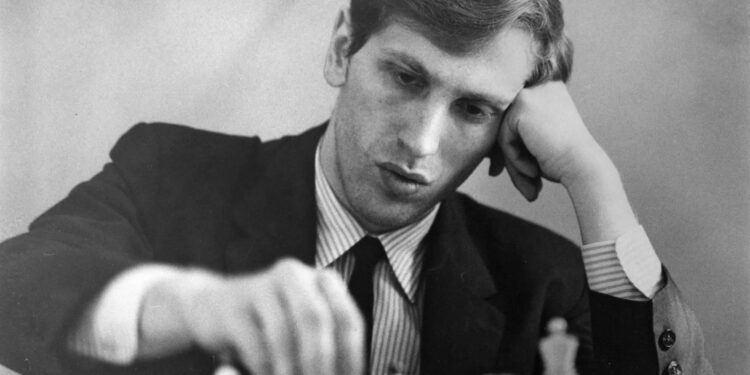Bobby Fischer was one of the most brilliant and controversial figures in chess history. Born Robert James Fischer in Chicago in 1943, he learned chess at age six and quickly revealed himself to be a prodigy. By age 13, he won what became known as “The Game of the Century” against grandmaster Donald Byrne, showcasing his aggressive and innovative playing style that would become legendary.
Fischer’s ascent in the chess world was meteoric. He became the youngest U.S. Chess Champion at age 14 and the youngest grandmaster (at the time) at age 15. Throughout the 1960s, he dominated chess competitions, culminating in his most famous achievement: winning the World Chess Championship in 1972 against Soviet champion Boris Spassky in Reykjavík, Iceland. This match, dubbed “The Match of the Century,” transcended chess and became a symbolic Cold War battleground between the United States and the Soviet Union.
His playing style was characterized by exceptional precision, innovative opening preparations, and an uncompromising drive for victory. Fischer’s understanding of chess positions and his ability to find the most aggressive and accurate moves made him feared and respected by his opponents. He was known for his preference for clear, decisive victories rather than draws, which added to the dramatic quality of his games.
However, Fischer’s genius was accompanied by increasingly erratic behavior and controversial statements. After winning the world championship, he became increasingly reclusive and paranoid. He forfeited his title in 1975 after failing to agree on match conditions with challenger Anatoly Karpov. Despite his withdrawal from official chess, his influence on the game remained profound. His book “My 60 Memorable Games” is considered a masterpiece of chess literature.
The later years of Fischer’s life were marked by controversy and exile. He resurfaced in 1992 for a rematch against Spassky in Yugoslavia, defying U.N. sanctions and causing legal problems with the U.S. government. His public statements became increasingly anti-American and antisemitic, despite his own Jewish heritage. He spent his final years as a fugitive, eventually receiving asylum in Iceland, where he died in 2008.
Despite his tragic personal decline, Bobby Fischer’s legacy in chess remains undiminished. He revolutionized chess preparation, raised the profile of the game globally, and demonstrated a level of genius that inspired generations of players. His peak rating of 2785 and his 20-game winning streak against the world’s top grandmasters were unprecedented achievements that helped establish him as possibly the greatest chess player of all time. His story serves as both an inspiration and a cautionary tale about the fine line between genius and madness.
newshub



Recent Comments